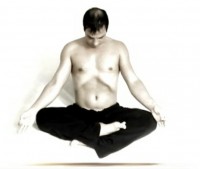This is a study on the precise elasticity of muscle balance in the human body using yoga poses. It is designed to help identify mechanical imbalances that cause joint wear and tear.
MANY AILMENTS CAN BE PREVENTED WITH EARLY INTERVENTION!
------------------------------------------------------------------
The study involves tests for imbalance in the following yoga poses listed below.
- Modifications are made to the poses for individual flexibility limitations.
- The yoga postures are used to show skeletal and muscular imbalances.
- These identifications can be used in prevention of musculoskeletal problems.
- Some of the muscles tested are listed below the yoga poses.
*Requirements: Each session is filmed to show techniques. A small interview is give both before and after to assess progress. There is a 12 hour after questionnaire to record pain and swelling recovery.
Back Bending & Forward Bending

Multifidus - (Extends spine) Rotators - (Rotates spine) Levator Costarum (Elevates ribs) Quadratus lumborum - (Lateral Flexion) (Lower Spine Rotation) Erector spinae - spinalis - (Lateral flexion of spine) Erector spinae - iliocostalis - (Extends and laterally flexes spine) Erector spinae - longissimus - (Extends spine) Longissimus Cervici sLongissimus Thoracis - (Extension, lateral flexion of vertebral column, rib rotation) Longissimus Lumborum - (Extends & rotates vertebral column) Iliocostalis Lumborum - (Extension, lateral flexion of vertebral column, rib rotation) Iliocostalis Thoracis - (Extension, lateral flexion of vertebral column, rib rotation) Iliocostalis Cervicis - (Extends cervical vertebrae)
Rotation and Hips

Multifidus - (Extends spine) Rotators - (Rotates spine) Pectoralis major - (Adduction, flexion and medial rotation of arm) Latissimus dorsi - (Adduction, extension and medial rotation of the arm. Retraction and depression of shoulder) Gluteus maximus – (External Rotation) (Leg Extension)
Gluteus medius – (Hip abductor) (Internal rotation) Gluteus minimus – (Internal rotation) (Hip abductor)
Sacrum & Legs

Biceps femoris – long head – (knee flexion, internal and external rotation, and hip extension) Biceps femoris – short head – (knee flexion, internal and external rotation, and hip extension) Semimembranosus – (Extension of hip and flexion of knee)
Semitendinosus – (Extension of the thigh at the hip, Flexion of the leg at the knee, Internal rotation of the leg at the knee) Gastrocnemius – (Plantar flexing the foot at the ankle joint, flexing the leg at the knee joint) Soleus Plantaris – (Plantar flexes foot and flexes knee)
Shoulders & Low Back

Latissimus dorsi - (Adduction, extension and medial rotation of the arm.
Shoulders (Anterior/Posterior) & Legs

Serratus Anterior – (Protracts and stabilizes scapula, assists in upward rotation) Serratus Posterior Superior – (Used for Breathing – Inhalation) Serratus Posterior Inferior – (Used for Breathing – Exhalation) Pectoralis Minor – (Draws the scapula round the ribs forward toward the ribs and lifts the ribs during inhalation) Pectoralis Major (Adduction, flexion and medial rotation of arms)
Levator Scapulae – (Raises medial border of scapula) Trapezius – (Elevation, depression and retraction of the scapula) Rhomboid Major – (Retraction and depression of the scapula. Binds the scapula to the thoracic wall) Rhomboid Minor – (Retraction and depression of the scapula. Binds the scapula to the thoracic wall)



